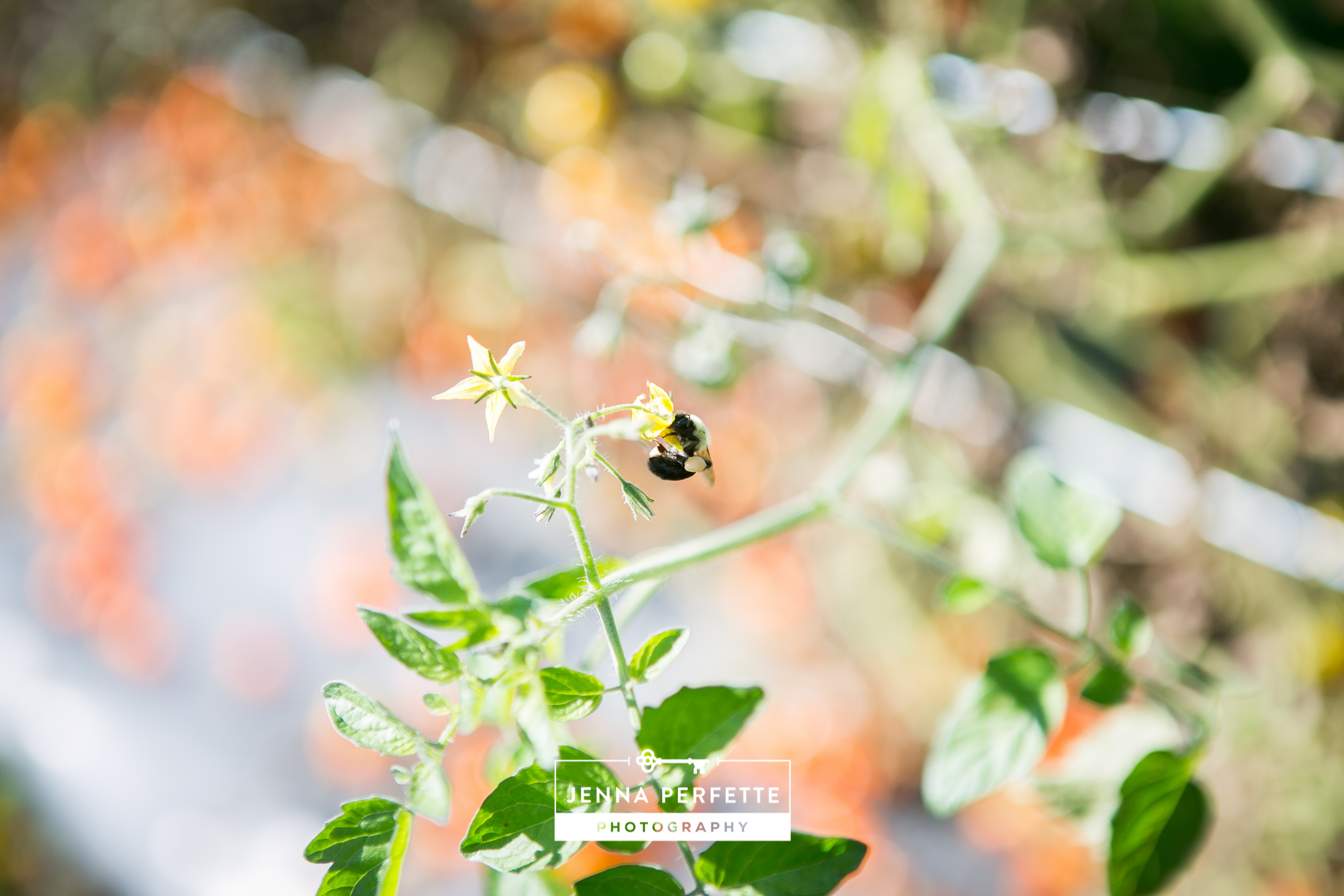Why Farmers Markets are Awesome and Why Organic is Worth It
/Your mom was so right! It's so important to eat your vegetables. Think of food as fuel. If you give your body the fuel it needs, it repays you with the energy you need to do things like move and think. Its that simple. And the higher the quality of that fuel, the better your body will perform. So when you choose to eat plant-based meals (packed with vitamins, minerals, and nutrients) vs. a standard American diet (full of highly processed, sugar-laden, chemical laced food-like products) there will be a huge difference in the amount of energy you have and an improvement to your overall mood.
Two great ways to help incorporate more good-for-you foods into your diet is to cook more meals at home and shop at your local farmer's market. When it comes to fresh produce, I have a little check list: local, seasonal, and organic. They are important to me in that order. When you shop at a farmer's market instead of a big chain grocery store you'll often be able to check all three. I understand that it's not everyone's priority to consume the highest quality foods every day. It's not easy to eat well all the time - or even most of the time - but it is undeniably imperative to maintaining good health. It's a no-brainer. Making healthier eating decisions brings an array of physical and mental health benefits. Another interesting thing to think about is that what you choose to put on your plate has positive effects beyond you as an individual. It's bigger than that. When you begin to look at it from a different perspective, you realize that it's all connected. So with that in mind, I'd just like to communicate a few of the main reasons why farmer's markets are so awesome and why organic really is better.
1. Easy access to fresh, high quality, better tasting, and more nutrient-dense food
When you choose to buy your produce at a local farmers market you can guarantee that it has spent way less time out of the ground than conventional, mass produced products. Farm fresh veggies don'ttravel across oceans or even multiple states until they get to your kitchen. Conventional produce typically travels 12 to 60 times further than local produce and sometimes takes more than a week to reach it's final destination! Farmers market produce on the other hand, will most likely only have been picked several hours previous to the time it finds its way into to your eco-friendly, reusable bag.
Variety is another advantage. It's like boutique shopping for food. As I tell my health coaching clients, "Eat the Rainbow!" The more colorful your food choices, the more diverse your intake of vitamins, minerals, and antioxidants. At a farmer's market, there's not just one kind of boring, mass-produced tomato or potato. If you're looking for iceberg lettuce, you will be sorely disappointed. You might find 3 or more kinds of lettuce. Maybe there are also some micro-greens (ooh, fancy) and a couple kinds of kale. The cool thing is that each of them has its own flavor and you have the ability to be adventurous, to try different kinds of veggies, herbs and spices that you never even knew existed. Don't be surprised if you come across some beautiful, colorful miracle of nature that you've always wanted to try but never got the opportunity. Heirloom tomatoes, watermelon radishes, bok choi, fennel, kohlrabi, leeks- or maybe the fresh root version of this turmeric you keep hearing so much about - just to name a few. Don’t be afraid to ask questions. Farmer's are amazing people. They are stewards of the Earth and a wealth of knowledge. Start a conversation. Every edible jewel you see was hand-picked at the peak of ripeness. It just tastes better. If you don't believe me, go out and experience the difference yourself. And don't be fooled by those shiny, uniformly sized apples you find in the grocery store. Just because it's unblemished and perfectly shaped doesn't mean that it is more delicious!
2. Helping to save the Local & Global Environment
Small-scale farms that use organic growing methods maintain enriched, happy soil unlike industrial farming that causes erosion and depletes important nutrients and minerals from the soil over time. Unhealthy soil = unhealthy plants = unhealthy people. Typical industrial farming uses pesticides to control the insect population and herbicides to kill weeds. This leads to chemicals leeching into the earth and nearby water systems. Monoculture, or farms that only focus on one crop like corn or soy, destroys the natural habitats of native insects and animals while organic farming promotes biodiversity of crops which in turn facilitates a natural and thriving ecosystem.
And because food needs to travel a ridiculously smaller distance to reach its point of sale, less fuel is used to get the produce into the hands of consumers. Wrap your brain around this stat: If every 4-person family in the U.S. ate just a single meal per week prepared with only locally grown and sold food, 4.5 million less barrels of oil would be needed - that’s 189 million gallons! In one week!
3. Support Healthier and Happier Communities
You're bound to experience more pleasant social interactions and a nicer atmosphere at your local farmers market than the grocery store. Have you ever seen an angry farmer's market shopper? There are many more opportunities for learning about nutrition, agriculture and cooking at the farm stand. Studies have shown that populations with access to a local farmers market are fitter and healthier in general.
4. Stimulate Local Economies
Buying local returns much of the sales right back into your own economy. Stat: If consumption of local food increases by a mere 5%, $100 million will be pumped back into the region. Yes, organic produce is more expensive, but here are some economic realities and hidden costs that organic farms are faced with. These are things that large conventional farms and giant food corporations tend not to lose sleep over due to government subsidizing and incentive programs. Paying fair wages to all workers, investing in the longevity of a biologically diverse farm, and keeping quality at the highest level possible. For a good, organic farmer, there's no cutting corners. Their livelihood depends on the success of each individual crop, if there is an - insert act of nature here - (new insect pest, invasive weeds, excessive heat, frost, hail, flooding, blight, hungry deer) that ruins an entire field of garlic, that loss has to be made up somewhere else to keep the ledger in the black. It's a system of checks and balances that is in an eternal ebb and flow.
5. Preserve Farmland and the livelihood of farmers
Buying your produce at a local farmer's market or through a nearby CSA supports farmers, their land, and their families. Being a organic farmer is no easy task. It's a difficult way of life. It's more than just showing up with a truck full of beautiful produce. There are so many steps in between seed to stand. Preparing the soil for seeds, planting and sowing, watering, fertilizing, weeding, pruning, harvesting, loading, washing, prepping for sale, transporting, unloading, then finally selling, and not just listing a price but being knowledgeable about the product and how to prepare it. There is so much love, care, forethought and of course there are the extremely long hours of back-braking work. There aren't big industrial machines that can do the work necessary to care for and raise all the dozens of different varieties of produce that can be found on any given organic farm. It's a constant struggle of not only the physical labor and finding loyal, reliable workers but having the flexibility to wear all the hats necessary to run a successful modern-day farm. It takes a very diverse skill set to be equip for the necessary decision-making and creative problem solving that needs to be done every single day. At any given moment a good organic farmer has to switch gears and become whatever the task at hand demands: Salesman, Master Chef, General Contractor, Gardening Consultant, Office Manager, Accountant, Social Media guru, Educator, Plumber, Engineer, Tractor Mechanic, Project Manager, and the list goes on. And lets not forget the multiple fields of science in which the savviest of farmers must be proficient: Botanist, Entomologist - observational skills and critical thinking are invaluable for both handling emergencies and, not repeating mistakes, and planning smarter for the future. Each crop requires a unique set of needs and proper handling to ensure a healthy, thriving product. This is the polar opposite of monoculture, people. If you miss harvesting the lettuce because you were to busy paying attention to the tomatoes, it could bolt, go to seed and is no longer a sellable piece of produce. It's a lot of balls in the air at once. There's no such thing as a "typical day" on the farm.
I'd be willing to bet if you take the time to talk to your local organic farmer, you'll find that making a huge profit is not why they are in the business. When I asked Jennifer what her favorite aspects of the job were money was not something she mentioned. She and her husband Sean's drive come from a deep love and respect for nature and the land. The ability to eat really, really great food every day, teaching their 5 year-old daughter, Ginger, the value of a healthy diet, sharing important life skills like how to cook a nutritious meal, breaking bread with family over a meal you lovingly prepared and cultivated yourself from seeds are all the rewards. An additional benefit of owning, operating, and managing a farm, Jennifer expressed, is teaching others to work the land builds a team spirit, comradery. It is Inspiring and rewarding when their passion grows and they take their love and skills to start a farm of their own.
Jennifer and Ginger at Oak Nut Farm in Bethel, PA ---- "It's a personal choice to be good stewards of the land. A deep love and appreciation for nature made organic farming the only path to choose." - Jennifer
When we shop at large scale grocery stores, we're accustom to food being cheap. I know these two connected concepts are ones that most people are unwilling to accept, but they are undoubtedly true; cheaper is hardly ever better, and you get what you pay for. There's something to be said about value vs quality? What's it worth to you? It's one thing to get a "good deal" it's quite another to pay less for an inferior product. It seems funny when you put it into perspective. Some people don’t bat an eye dropping $5 a day on a fancy cup of coffee but they refuse to spend a little more per pound for an organic vegetable that was raised and harvested by real humans with care AND it tastes better AND a higher amounts of essential nutrients AND has a much smaller carbon footprint. Just think about it. What's really important to you? What will increase your quality of life?






